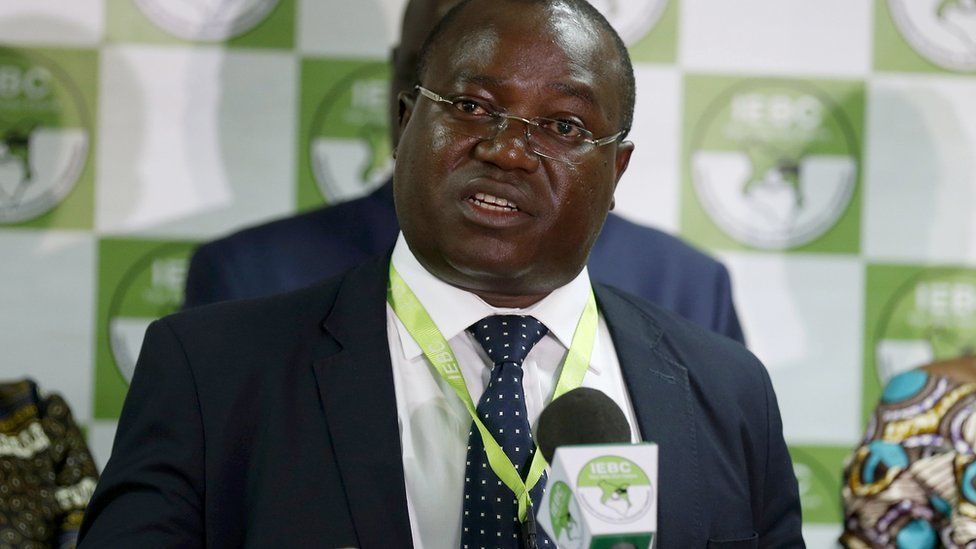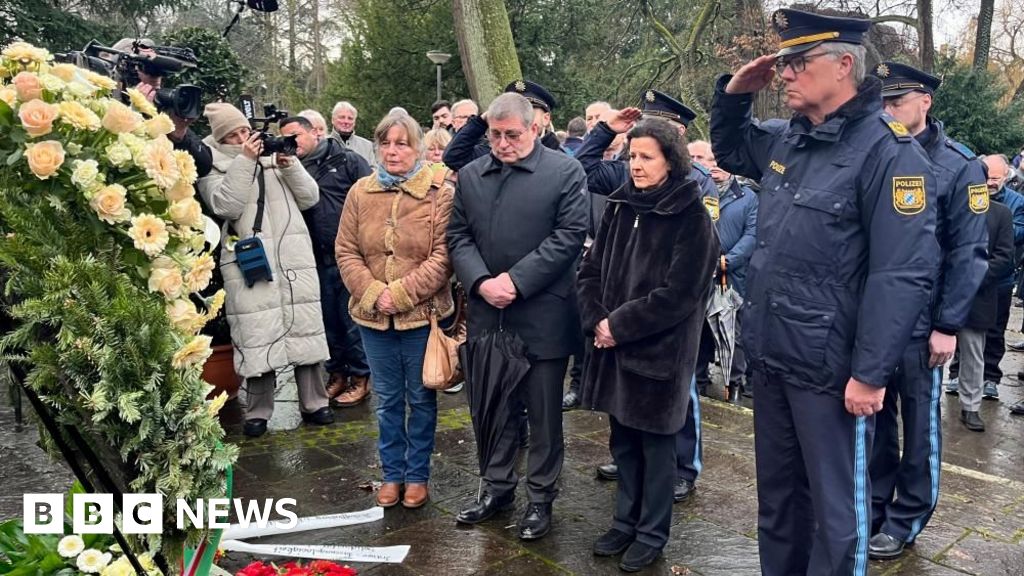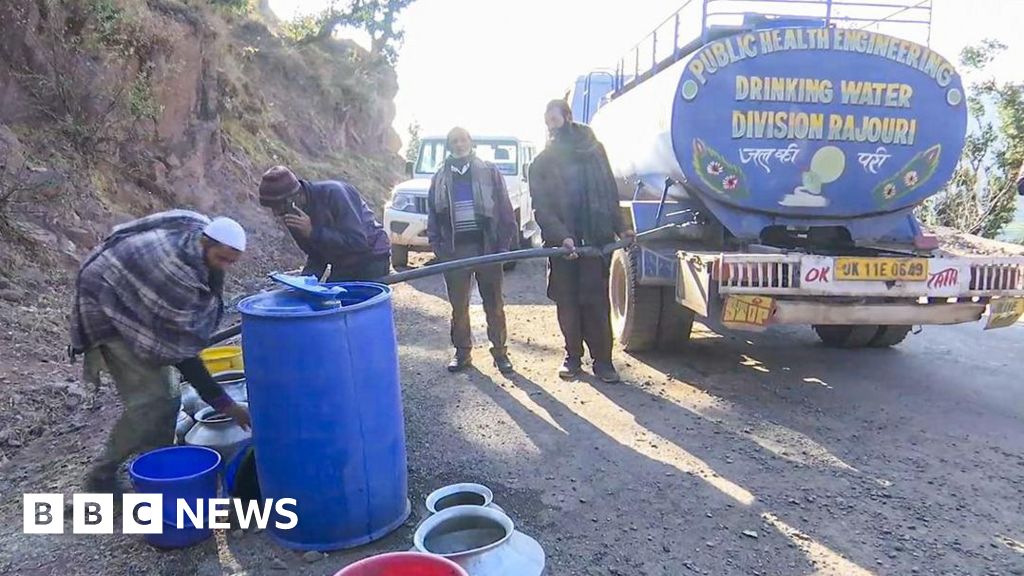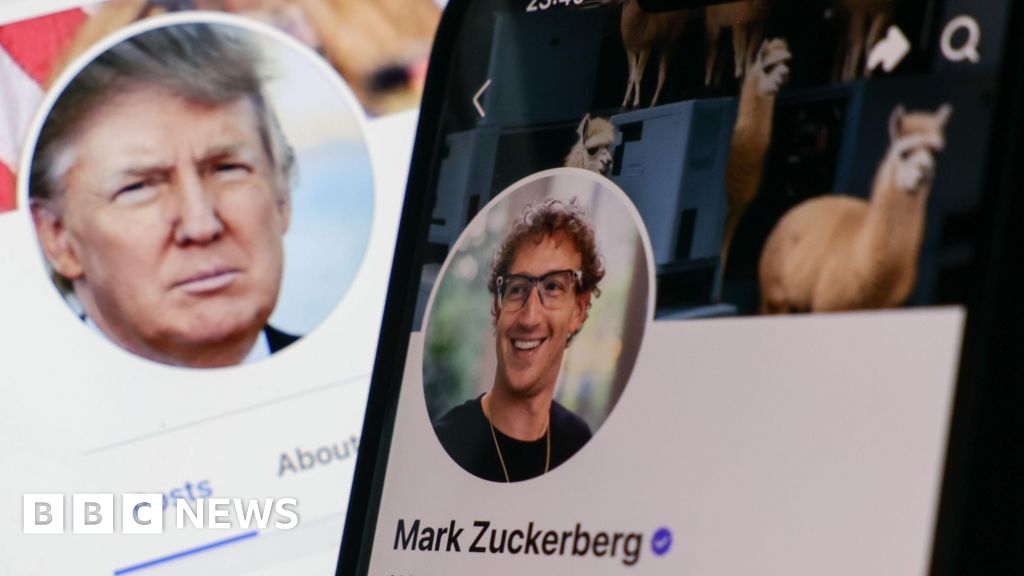ARTICLE AD BOX
By Dickens Olewe
BBC News, Nairobi
 Image source, Nation Media Group
Image source, Nation Media Group
Chris Msando, head of technology at Kenya's electoral commission, was murdered five years ago
A bungled poll and the gruesome murder of a senior official in charge of voting technology in 2017 still haunts Kenya, ahead of the elections next week.
The chairman of the independent electoral commission has repeatedly sought to reassure a sceptical public that his team can deliver a credible vote, but he has also been warning about a co-ordinated campaign, especially on social media, to malign and intimidate his workers.
"Our staff in the commission, especially [those in] ICT are now frightened… I just want to urge the people behind it to stop what they are doing," Wafula Chebukati told journalists.
He has valid reasons to be worried: five years ago his then head of technology, Chris Msando, was kidnapped and brutally murdered, along with his friend 21-year-old Carol Ngumbu.
Their bodies were found in bushes on the outskirts of the capital, Nairobi - and no-one has been arrested or charged for the killings which remain shrouded in mystery.
"Surely with a professional police service and a professional and effective government we would have some closure on this matter… The nation does not know who took the life of an elections official who was handling a very sensitive part of the elections," Amnesty International Kenya's Executive Director Irũngũ Houghton told a local TV station recently.
With a friendly and calm manner, Mr Msando had been a regular on local TV stations, demonstrating the measures he had taken to ensure the election was not rigged.
"Dead voters will not rise on my watch," he said in one interview.
He had put his confidence in biometric data to verify voters using fingerprints and an electronic system to transmit the results.
Image source, Getty Images
Image caption,Ballot papers to be used in the election were printed outside the country
The use of such technology was adopted following the fallout of the 2007 polls when accusations of ballot stuffing triggered weeks of violence in which at least 1,200 people were killed and some 600,000 fled their homes. At the time the then electoral commission chairman even admitted he was not sure who had won.
This election looks like it too will be a tight presidential race - between frontrunners Raila Odinga, a long-serving opposition leader who is running for president for a fifth time, and Deputy President William Ruto.
'Technology is not democracy'
Making things more dramatic, outgoing President Uhuru Kenyatta is rooting for Mr Odinga, a nemesis-turned-ally, to succeed him following a breakdown of his relationship with Mr Ruto.
Voters will also be choosing governors, senators, MPs and county assembly members.
Yet the increasing use of technology in the three polls since 2007 has not delivered credibility - and in 2017 it led to the Supreme Court overturning the vote and ordering a new election.
"Despite the failures in 2013, more tech was procured in 2017. The cost of the election jumped from $10 [£8] per registered voter in the first election to $25 in the rerun, earning Kenya the dubious honour of holding the most expensive elections in Africa," Nanjira Sambuli, a technology and governance analyst, told the BBC.
"Technology is not democracy, " Ms Sambuli said.
The Supreme Court ruled the August 2017 vote "invalid, null and void" as some 10,000 polling stations failed to transmit the votes.
"This was a significant number, plus the electoral commission gave excuses when they were asked to open computer servers for a review of what happened," constitutional lawyer James Mamboleo told the BBC.
"They said the commission must be accountable to the people in all processes from voter registration to an effective transmission system."
The ruling dented confidence in Mr Chebukati, but he managed to stay in the job despite relentless pressure for him to resign.
This time round the commission will reuse tens of thousands of election voter verification kits bought for the October 2017 rerun and has tightened up its procedures.
Only people who can be verified by the electronic system will vote and a photo of the results will be sent digitally from more than 50,000 polling stations instead of a text message, which was the method previously used.
This is how it will work for the presidential ballot:
- All voters will have to be verified using either a fingerprint or an identity card
- After polls close, an image of the results form, signed by the presiding officer and party agents, will be electronically transmitted using the integrated voting kit to the tallying centres at the constituency and national levels
- A copy of the form will be given to party agents and posted outside of the polling station
- Voter verification kits will be geo-locked to individual polling stations to prevent fraud
- The winner will only be announced after the physical results form is received by the commission to verify it against the photo initially sent.
"We are going to make it very difficult in this election for people to go to court to challenge the results that we have, because we are so transparent that even if they want to go to court, they would be very embarrassed to do so," one of the electoral commissioners, Justus Nyangaya, told the BBC.
He also said that the voter identification kit would be sending information to the national tallying centre every two hours, which he says will scupper attempts to stuff ballot boxes.
Image source, Getty Images
Image caption,Mr Chebukati is a man on a mission to redeem himself after the last election was annulled
Still tormented by the last election, the electoral commission chairman has also urged the media, political parties and civil societies to do their own tallying of votes.
"Chebukati is intent on making amends by taking full responsibility as the chair, and instituting a system that will guarantee a free, fair, transparent and verifiable elections to exonerate himself from the legacy of the chairman known for bungled elections," political analyst Hesbon Owila told the BBC.
"As an individual he has learnt from the past, but as Kenyans, we can... also be vigilant."
Mr Mamboleo agrees: "Has the electoral commission tried to live up to the high standards set by that 2017 Supreme Court ruling? In my view, it's yes. They have engaged political parties, candidates, and the public in ways we haven't seen in past elections."
A call for justice
By law, the electoral commission has seven days after the vote to declare the winners - and by encouraging the media and others to tally results Mr Chebukati hopes the transparency will vindicate him and the commission.
It would certainly be an important milestone for Kenya if this was achieved.
As Mr Msando and Ms Ngumbu's families marked the fifth anniversary of their murders last month, they again said Kenya's democracy should be anchored in the rule of law - and hoped one day they too will get justice.
"We pray that one day we get to know the truth," Mr Msando's family wrote in an obituary in one of the local papers.
Who is in the race to run Kenya?
Learn more about Kenya’s presidential candidates
Choose a candidate to view their bio
Raila Odinga
William Ruto
George Wajackoyah
David Mwaure
Raila Amollo Odinga
Azimio la Umoja Coalition
The basics
- Age: 77
- Nicknamed “Baba”
- Son of former vice-president
- Trained as an engineer in what was then East Germany
- Prime minister from 2008 to 2013 in the unity government created after post-election violence
- Formed alliance with ex-political enemy President Uhuru Kenyatta
- Four-time unsuccessful presidential candidate
Known for
- Championed multiparty democracy in the one-party era.
- Detained twice (1982-88 and 1989-91) as a political prisoner.
- Seen as a formidable campaigner able to draw large crowds.
Key policies
- Achieve double-digit economic growth through investment in small business and manufacturing sector.
- Provide affordable quality healthcare for all.
- Disburse $50 (£42) a month to two million needy households.
William Samoei Ruto
Kenya Kwanza Alliance
The basics
- Age: 55
- Worked as a street trader as a teenager.
- Has a PhD in plant ecology from the University of Nairobi.
- Served as deputy president since 2013 but fell out with boss President Uhuru Kenyatta.
- One of Kenya’s biggest maize farmers.
- Charged by the International Criminal Court over post-election violence – charges later dropped.
Known for
- Portrays himself as champion of the downtrodden.
- Coined phrase “hustler nation”
- Owns huge parcels of land but the source of his wealth is a subject of speculation.
- Praised as an effective agriculture minister from 2008-2010.
- Seen as a powerful orator and robust media interviewee
Key policies
- Give all Kenyans subsidised health insurance cover and a fee waiver for poor households.
- Allocate $420m annually to support small and medium-sized enterprises.
- Appoint a gender-balanced cabinet.
George Wajackoyah
Roots Party
The basics
- Age: 63
- Holds a masters in international development law from the UK’s University of Warwick.
- Says he has 17 university degrees
- Worked in police intelligence before he fled the country in 1990 to escape from torture
- Gained notoriety with eye-catching policies
Known for
- Lived on the streets of the capital as a child and was rescued by Hare Krishna worshippers
- Partner in a law firm he established in 2018
- Campaigns wearing a tracksuit, T-shirt and headscarf rather than a smart suit
Key policies
- Legalise the farming and production of marijuana for industrial and medical use
- Switch to a four-day working week from Monday to Thursday
- Invest in snake farming to extract the venom which can be exported
David Mwaure Waihiga
Agano Party
The basics
- Age: 65
- Practised law for more than three decades
- Also an ordained reverend
- Previously ran for MP, senator and county governor – losing each time
Known for
- Founded Agano Party in 2006
- Says he brings a “breath of fresh air” to the top of politics
- First expressed an interest in running for president in 2013
Key policies
- Set up an asset recovery agency under the presidency to recover stolen funds
- Slash income tax by half and get rid of it altogether for medics and police
- Give incentives to manufacturers and entrepreneurs to create jobs

 2 years ago
23
2 years ago
23








 English (US) ·
English (US) ·